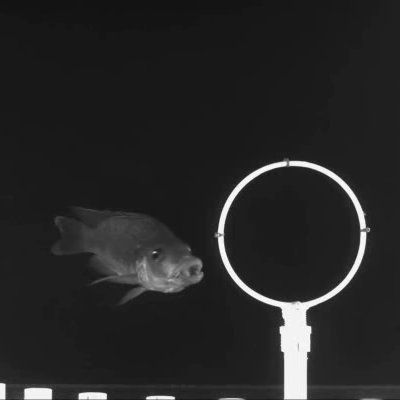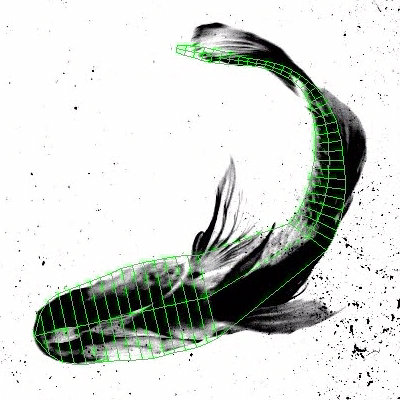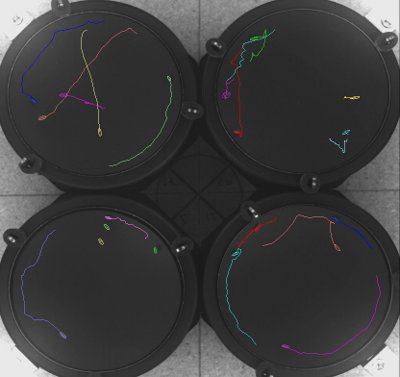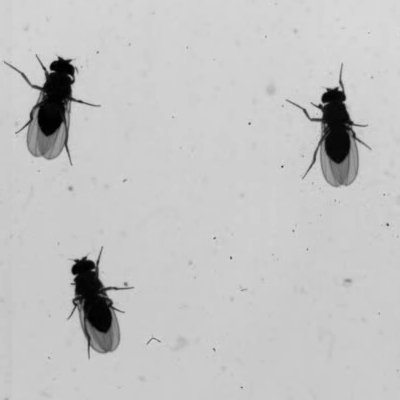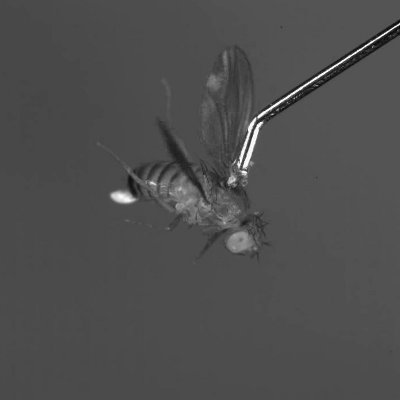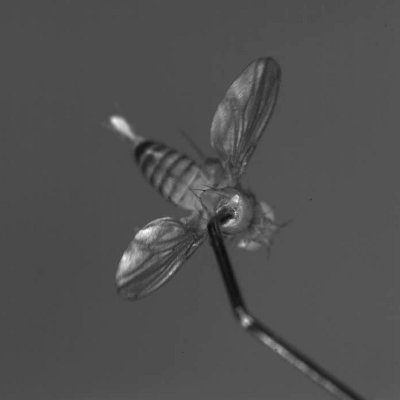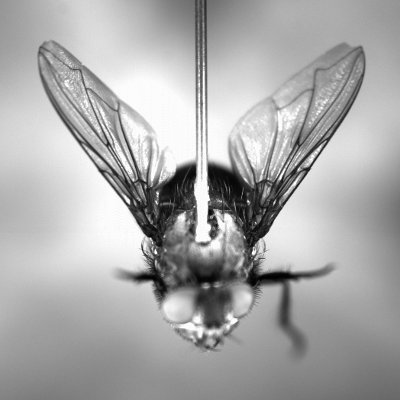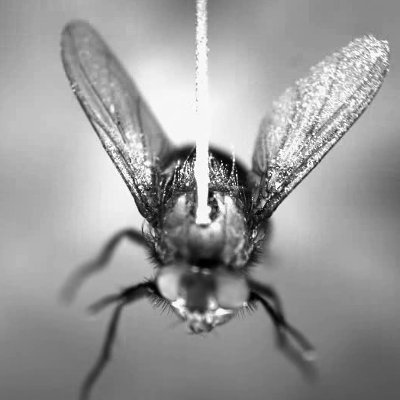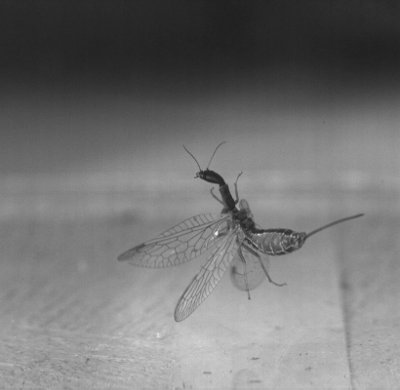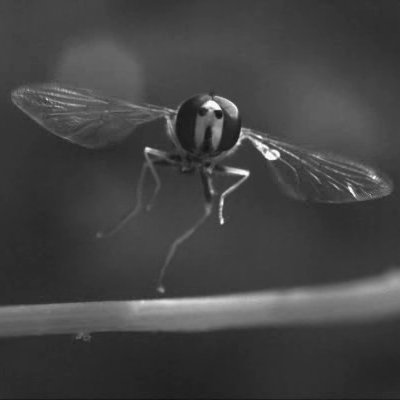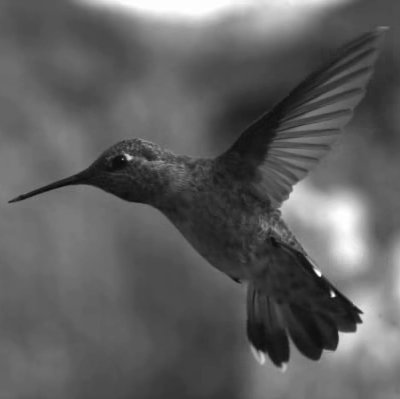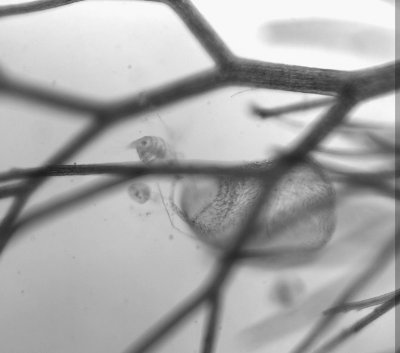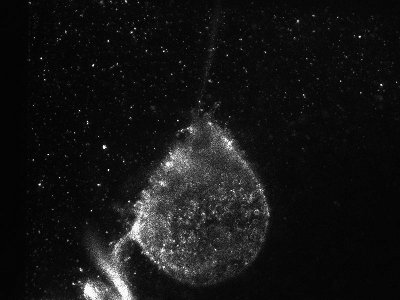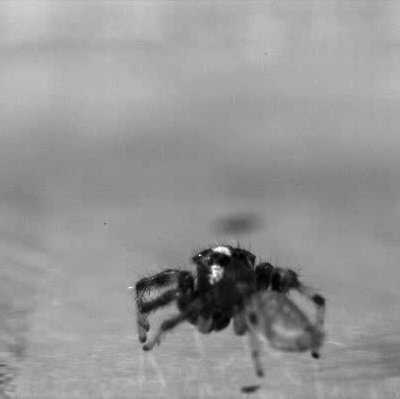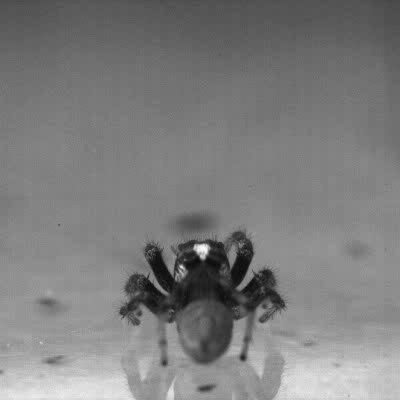The still images link to .avi files (xvid mpeg-4 compression) which
will open if your local system has an assigned helper application, and
the Xvid codec installed.
Mac users, and those with other difficulties, may be best off
downloading the video and playing it with VLC media player.
Fish turns
A tilapia trained to swin through hoops performs a turn through 90 degrees. With the hoops separated by this great of a distance, the turn is obviously not a single maneuver, but rather aseries of small decisions and adjustments. LEARN MORE
Filmed in a 300-gallon aquarium, the images are conspicuously free of flares and reflections.400 frames/second 3.0 MB
Automated fish tracking
An adult tilapia performs a C-start as seen from below.
Superimposed on the negative image is a wire-frame model, part of the
two-dimensional tracking software (written by Ebraheem Fontaine)
that is used to extract kinematical parameters.400 frames/second 3.0 MB
Automated
fruit fly
tracking with Ctrax
Graphical output of the automated tracking program "Ctrax", developed
by the Dickinson group. The trajectory of each individual fly is
recorded, which enables statistical analyisis of their walking ability
in the sloped dishes.
LEARN MORE
10 frames/second 3.0 MB
Climbing
fruit flies
Female Drosophila melanogaster
tapped to the bottom of a cuvette, after which they instinctively climb
to the top. LEARN
MORE
Recorded at 60 frames/second. The clip plays back at
30 fps
(1/2 natural speed) then 1/4 natural speed.
0.75 MB
Tethered fruit fly
Female Drosophila melanogaster tethered to a wire, wingbeat frequency approximately 300 Hz.6 000 frames/second 1.4 MB
Tethered fruit fly
Female Drosophila melanogaster
tethered to a wire, wingbeat frequency approximately 300 Hz.
6 000 frames/second 1.2 MB
Tethered blue bottle fly Calliphora
latifrons
Housflies have linear dimensions ~five times greater than Drosophila, and 2/3 the wingbeat
frequency. An individual wing weighs approximately 170 micrograms.
6 900 frames/second 5.1 MB
Tethered blue bottle fly Calliphora latifrons
The same fly as above, with its wing mass artificially
doubled. Modified flapping kinematics are evident.
6 900 frames/second 6.2 MB
Snakefly Take-off
Female snakefly (order Raphidioptera); the takeoff is characteristic of high wing loading.10 000 frames/second 1.5 MB
Hoverfly
In contrast to the snakefly, a hoverfly has relatively low wing loading.
6 000 frames/second 1.3 MB
Hummingbird
Anna's hummingbird (Calypte anna). No collection of high-speed video is complete without it.
6 000 frames/second 4.0 MB
Bladderwort Utricularia vulgaris
Spontaneous capture of a copepod by a bladder ~2 mm long.
10 000 frames/second 0.6 MB
Bladderwort Utricularia gibba
A small bladder (~1 mm) artificially triggered for Particle
Image
Velocimetry. Suspended nylon particles are illuminated from the
left by a thin (50 um) laser sheet. The particles can be tracked
in order to record the vectorial flow field in the plane of the
laser. LEARN
MORE
10 000 frames/second 5.9 MB
